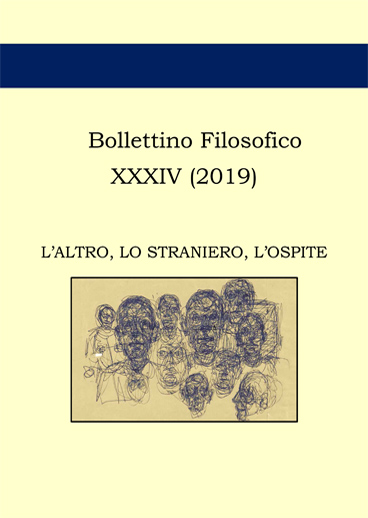Is Russian Philosophy a Philosophy of the Other to the West?
Abstract
The paper articulates ideas of Nikolai Berdyaev expressed in his book The Russian Idea and wonders if it is the case that, “The fate of the philosopher in Russia is painful and tragic”. If we think of Socrates, for example, his death was painful and in the end tragic. So, how is it the fate of the philosopher in Russia different from other philosophical traditions? Maybe the answer is that we can grasp Russian philosophy's otherness only by non-intellectual and non-theoretical rationality, which is not rooted in the mind but in the heart. As one of the Russian poets, Fyodor Tyutchev said, “Russia is not to be understood by intellectual processes. You cannot take her measurements with a common yardstick, she has a form and stature of her own: you can only believe in Russia”. Thus, the paper explores why Russian philosophy is the other and can be understood only within its connection within its cultural and historical background.
Keywords: Russian Philosophy, Russian Idea, Ontologism, Sobornost, All-Unity
Downloads
Bollettino Filosofico pubblica in internet, ad accesso aperto, con licenza:
|
|
CCPL Creative Commons Attribution |
L'autore conserva il copyright sul suo contributo, consentendo tuttavia a chiunque "di riprodurre, distribuire, comunicare al pubblico, esporre in pubblico, rappresentare, eseguire e recitare l'opera", purché siano correttamente citati l'autore e il titolo della rivista. L’autore, al momento della proposta di pubblicazione, è inoltre tenuto a dichiarare che il contenuto e l’organizzazione dell’opera è originale e non compromette in alcun modo i diritti di terzi, né gli obblighi connessi alla salvaguardia di diritti morali ed economici di altri autori o di altri aventi diritto, sia per testi, immagini, foto, tabelle, sia per altre parti di cui il contributo può essere composto. L’autore dichiara altresì di essere a conoscenza delle sanzioni previste dal codice penale e dalle leggi speciali per l’ipotesi di falsità in atti ed uso di atti falsi, e che pertanto Bollettino Filosofico è esente da qualsiasi responsabilità di qualsivoglia natura, civile, amministrativa o penale, e sarà dall'autore tenuta indenne da qualsiasi richiesta o rivendicazione da parte di terzi.
